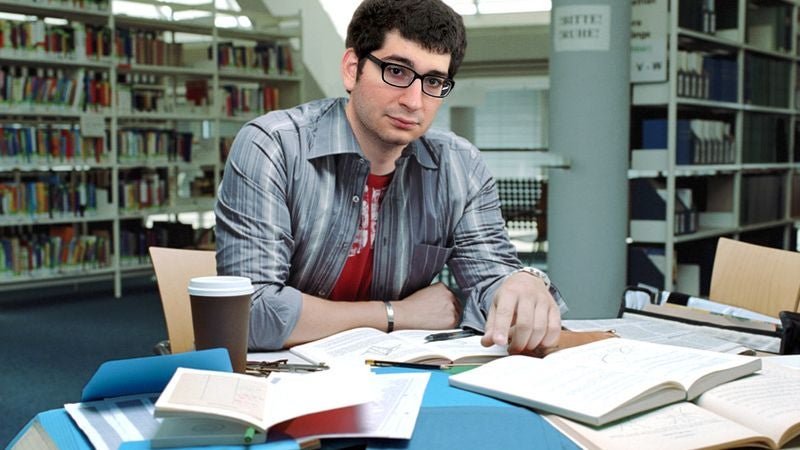BOISE, ID—To fully prepare for the upcoming party at his buddy Tim’s place Saturday, 24-year-old Jeremy Reed confirmed that he has spent the past week conducting comprehensive research on the history of parties.
Reed, who last Thursday received an e-mail from host Tim Helbling inviting him to the “huge bash,” said he immediately went online to read more about the historical origins of parties and the significant role they have played in both ancient and modern civilizations.
“I was so stoked after Tim’s invite that I figured I’d dig a little deeper into the nature of parties not only as a social phenomenon but as an aesthetic tradition throughout the ages,” Reed said of the upcoming gathering of roughly 15 people at his friend’s apartment. “How does society define a party? Where do parties come from? How have they evolved from era to era, and from culture to culture?”
Added Reed, “These are the questions I hope to answer before I get fucked up on Natty Ice at Tim’s this Saturday.”
In addition to signing up for a LexisNexis account, Reed has expanded his investigation with visits to the Boise Public Library, where he has reportedly already checked out a half dozen books on ritual intoxication, pagan celebrations of the vernal equinox, and the Beautiful Feast of the Opet, as well as a number of secondary texts related to human socialization and the contemporary role of marijuana.
Library sources said Reed regularly spends three to four hours poring over reference volumes, making photocopies, and highlighting pertinent texts before placing everything into a large accordion file labeled “Parties.”
“I was fascinated to learn that the ancient Egyptian high priests would celebrate the god Amun by adorning fine linens and magnificent jewelry,” said Reed, who plans on showing up to Tim’s place around 10 p.m. wearing a button-up shirt from Banana Republic. “Which, of course, contrasts greatly with a feudal society such as medieval England, where parties contained many secular elements, including the gifting of beer or ale to lords as payment for rent.”
Added Reed, “I doubt such an exchange will take place between Tim and his landlord, of course, but the concept is interesting nonetheless.”
Using colored note cards, Reed created a chart of the most prominent party themes throughout time. He also contacted anthropologist William Anderson at the University of Maryland after reading the professor’s essay on the importance of costumes in human celebration.
“Dr. Anderson is clearly the foremost expert in what modern partygoers would call ’theme parties,’ so I called him up,” Reed said. “We spoke at length about how concealing one’s identity at masquerade balls transformed the way guests interact and, indeed, transformed the ways in which people of a certain class and era defined their sense of self.”
“Anyway, I forwarded Dr. Anderson the invite, so hopefully he’ll come,” Reed added.
Reed also stayed up all night reading Plato’s Symposium, the philosophical text about male-only drinking parties, which he concluded must have been the ancient equivalent of “a sausage fest.” He said he was optimistic Tim’s get- together would have a jovial atmosphere, beverage consumption, and conversations with women.
“The Greeks enjoyed discussing many subjects and issues at the symposium, and I, too, plan to have a variety of topics to talk about,” said Reed, adding that it was a shame the party was on Saturday, as there is a lecture on fin de siècle celebrations at Boise State University’s Keener Hall that same night. “I’ll admit I might not be able to party quite like the Byzantines did, but if I’m feeling uncomfortable I can always attempt to change the subject.”
Added Reed, “Which, incidentally, is something people first started doing at parties in France during the early 1930s.”







